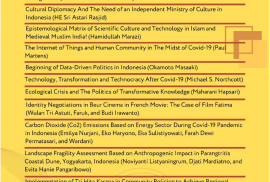Abstrack:
The number of exclusive breastfeeding in Yogyakarta reached 46,37% in 2012. One step in the success of exclusive breastfeeding is to initiate early breastfeeding. The purpose of this study was to identify the relationship between early initiation of breastfeeding and exclusive breastfeeding. The design of this study was longitudinal study with qualitative design. The number of samples in this study was 45 respondents. The data were collected by using standardized questionnaires. The result of this study was in the group that did not put a baby on her body after birth, there were 88,9% failure exclusive breastfeeding for six months. In the group that put her baby for ?30 minutes, there were 76% failure exclusive breastfeeding for six months. In the group that put her baby for >30 minutes, there were 63,6% failure exclusive breastfeeding for six months. The conclusion is the longer baby was placed in the mother’s body, the less failure of exclusive breastfeeding for six months.

